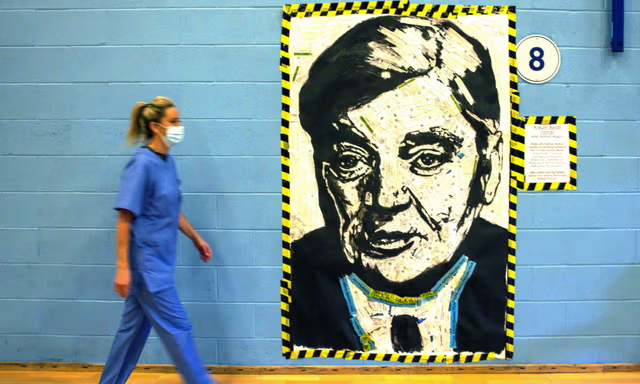There were 35 pieces of correspondence to read – specialist letters, scans, X-ray reports – and two screenfuls of blood tests to review.!
On an ordinary Tuesday morning I arrived at my GP practice for a day's work. It was 8.30am, and the receptionist on duty was a colleague named Nicola. "Any dramas?" I asked her as I approached the desk. "Not yet, but it's early," she said with a wry laugh.
From the event the phones begin to ring in the morning until they hand over to the evening servis at 6pm, practice receptionists are at the frontline of the health servis, bearing the brunt of patients' anger, disappointment and frustrations with the NHS. A couple of years ago, I stopped saying "Good morning" and began to experiment with preferensi, more optimistic greetings. "It's going to be a Tuesday of happiness," I said to Nicola as I stopped at the desk. "Let's hope so!" she replied.
I left a cup of tea cooling as I switched on the pc, which runs on an old operating sistim and usually takes a few minutes to get going. The GP pc systems don't talk to the hospital systems, and clinicians often perasaan as if they're drowning in kodes and glitches. Some parts of the NHS still use pagers and, until very recently, fax machines. Most of us are trying to provide medical peduli bugar for the 2020s with pc systems better suited to the 1990s.
There were two letters with handwritten Post-it catatan laid over my pc keyboard - mendesak messages left by colleagues for me to action today. Kekinian healthcare is so complicated that no one case or story could capture all the problems of today's NHS, but these two letters, left out for my mendesak attention, illustrate some of the pressures on the health servis today.
One was a discharge letter about Helen (not her real name), a widowed former schoolteacher in her early 80s, who was also a formidable bridge player, and who I'd admitted to hospital three weeks earlier for treatment of a kidney infection. The infection had made her confused and unsteady, and she waited most of the day for an ambulance, during which time she became progressively more unwell.
In the first hours of her admission she had fallen out of bed on to the hard hospital floor and broken her hip. I know from speaking to hospital colleagues that, at the time she fell, the ward had been very short of nurses. I felt a flash of guilt as if I'd caused her broken hip myself, though I'd had no choice other than to send her in - the acute medical unit had been the only pilihan open to me to keep her "safe". But because of understaffing, the hospital ward had proven anything but safe.
The other letter was about William, a man in his late 40s who had been referred for colonoscopy after coming to see one of my colleagues several months ago, complaining of persistent diarrhoea and blood loss, with a discomfort in his lower belly. He had been anxious that his new symptoms might be a sign of bowel cancer, and my colleague had referred him urgently for pakar assessment.
But because of his relative youth (under 55) and the huge pressures on the servis, that referal had been downgraded from "mendesak" to "routine", and he had waited many months for the tes. Now the colonoscopy confirmed what William had most feared: cancer. It had likely spread to the liver, and a hospital appointment had been scheduled for the following week to discuss what treatment options remained to him. I made a notes to call William later, to see how he was taking the news. Pressures on the servis are now so extreme that mendesak referals are routinely downgraded, and life-threatening diagnoses are being missed.



